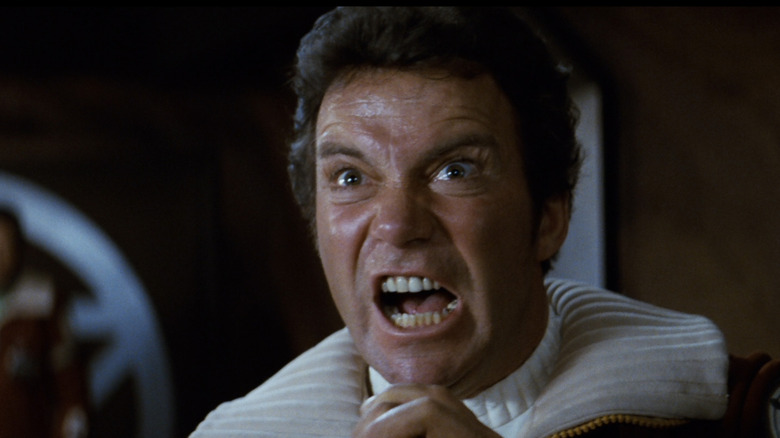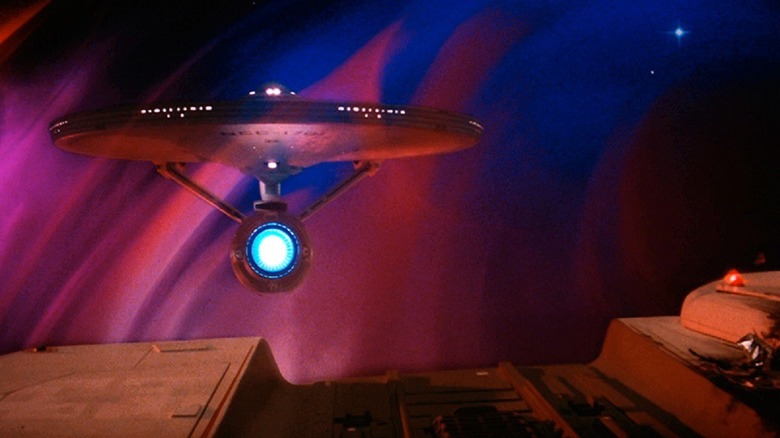French thinker Roland Barthes’ 1967 essay “The Dying of the Creator” argues the literary idea of separating the that means of a piece from the creator’s intention, basically permitting for a reader’s private interpretation to supersede it. Given the plethora of disparate voices seen at this time, made up {of professional} critics in addition to common viewers members, this idea has usually change into extensively accepted, no less than inside purpose. It is a a lot simpler factor to do relating to tv and movie, given the truth that, auteur idea apart, these are inventive mediums delivered to life by dozens or a whole bunch of individuals, and never only one.
But pushing previous the clearly said intentions of the originator of a piece might be daunting, particularly when that creator appears to alter their thoughts about what these intentions are over time. That is precisely the state of affairs that Nicholas Meyer, Harve Bennett, and the remainder of the individuals who crafted “Star Trek II: The Wrath of Khan” discovered themselves in with “Star Trek” creator Gene Roddenberry whereas making their movie within the early Nineteen Eighties. Though the Roddenberry of the unique “Star Trek” TV sequence could have been completely high-quality with what Meyer and Bennett wished to do with the movie, the Roddenberry post-“Star Trek: The Movement Image” was a distinct man, and had grown to consider that “Star Trek” ought to be trekking in a distinct course than the place it was going with others on the helm.
In brief, he believed it ought to’ve been going his approach. Years earlier than he ultimately succeeded in getting the franchise to comply with his course with the delivery of “Star Trek: The Subsequent Era,” Roddenberry had some alternative phrases for the creatives in command of “Khan,” and as Meyer just lately revealed, they weren’t significantly good phrases.
Meyer ‘blacked out’ Roddenberry’s vitriolic memos to him
By all accounts, the making of “The Wrath of Khan” was not the graceful crusing expertise one would possibly hope for (though, when in comparison with the grief concerned in making “The Movement Image,” maybe it appears rosy). In a latest interview with TrekMovie, Meyer recalled how he needed to write a capturing script for the movie in simply 12 days to maintain all the pieces on schedule (particularly the visible results work from ILM) and make the already-planned launch date of June 4, 1982. After “capturing within the day and modifying all night time,” as he described it, the ultimate lower of “The Wrath of Khan” simply barely made it to the end line intact. That it was any good, not to mention the very best “Star Trek” film ever made, is nothing in need of a minor miracle.
Given this tumultuous schedule, it is no shock that Meyer’s reminiscence of all the pieces that went down whereas making the movie is hazy some 42 years later. Plainly the movie’s usually optimistic reception and massively influential legacy have allowed Meyer to principally bear in mind all the nice points of creating the film, particularly how ecstatic many audiences have been upon seeing the movie for the primary time. What Meyer did not recall till this interview was that he’d had a bitter feud with Roddenberry throughout the movie, albeit one which appeared to play out wholly in memos:
“…folks requested me for years what was my interplay with Gene Roddenberry. And I stated, properly, you met him. You needed to shake his hand and so forth, however he wasn’t a part of making the film, which was actually true. However once I went again to my alma mater, the College of Iowa in Iowa Metropolis, I went to the library the place they’ve all my papers, and I used to be shocked to see an alternate of memoranda between me and Gene Roddenberry that I had completely blocked out. As soon as I learn them, I perceive why I blocked them. It was very poisonous, very venomous. He hated the script. I assume I did not know any higher, so I used to be intemperate. I responded intemperately. And I had simply blocked all reminiscence of this.”
How Wrath of Khan gave Star Trek followers what they wanted, not what they wished
A breakdown of precisely why Roddenberry was so upset over the script for “The Wrath of Khan” might be present in this piece by /Movie’s Witney Seibold, suffice to say that Roddenberry wasn’t happy with the extra adventure-oriented course the movie went in. As I discussed earlier, this may possible not have been an issue for Roddenberry throughout the making of the TV sequence, and for a few causes. For one, quite a few episodes of the present have been very adventure-oriented, together with “Stability of Terror,” which, like “Wrath of Khan,” was straight impressed by 1957’s “The Enemy Beneath.” For an additional, Roddenberry hadn’t but fallen underneath the affect of the huge throng of Trekkers (Trekkies when you’re nasty), “Star Trek” followers and their teams who have been an influential a part of protecting the sequence on the air and bringing it again to life.
We all know now, in 2024, how damaging fandoms might be to artwork and tradition; if nothing else, they seem to be a sterling instance of why artwork ought to by no means be made by committee. Again within the ’70s and ’80s, nevertheless, they have been a comparatively new affect, demonstrating to studios and creators alike how they might assist make or break a franchise. With all of the discussions Roddenberry had with these followers, he started to get the notion that “Star Trek” ought to distinguish itself from style traditions, utilizing its built-in idea of a utopian, progressive future society to additional concepts of battle avoidance, diplomacy, collaboration between teams, and so forth. These are all noble targets, however they do not simply make for good drama. Whereas Roddenberry’s imaginative and prescient of a brand new “Star Trek” would ultimately change into higher honed, permitting for the franchise to thrive to this present day, it had some rising pains, felt most keenly throughout the making of “The Movement Image” and “Khan.”
What Meyer, Bennett, and the remainder of the makers of “Khan” have been doing was following among the core tenets of drama, making inventive selections that solely sounded probably dissatisfying on paper however, when executed on the extent of greatness (as they ended up being), turned out incredible. Chief amongst these selections was the dying of Spock (Leonard Nimoy), a alternative that Roddenberry tried to stoke the fires of fandom in opposition to, however which proved to be an iconic second in “Star Trek” and movie historical past. What the lesson of “Dying of the Creator” actually is does not contain a “proper” or a “incorrect” interpretation of a piece. As an alternative, it is about liberating oneself from objectivity in artwork: you by no means know for positive till you strive it for your self.

